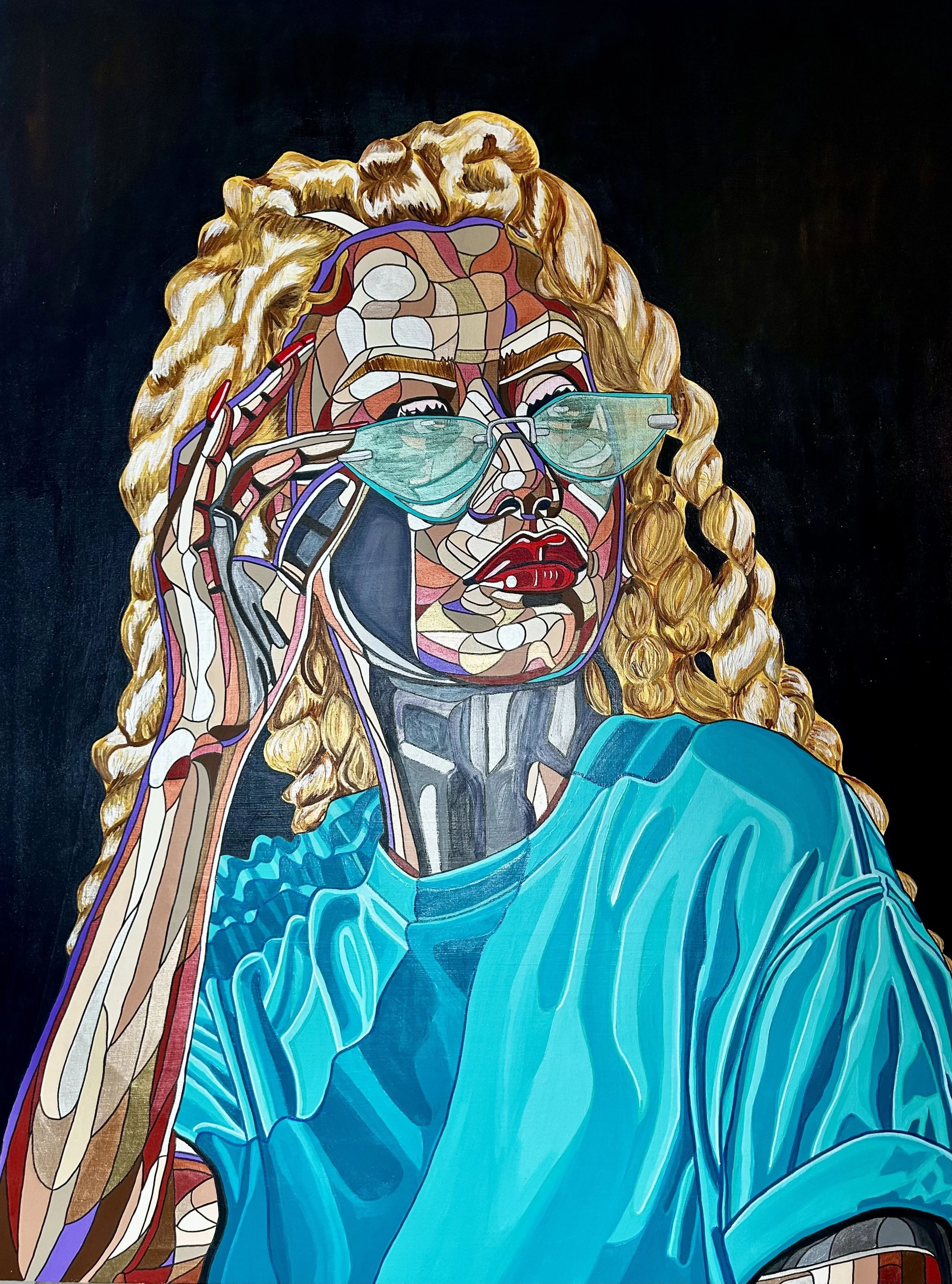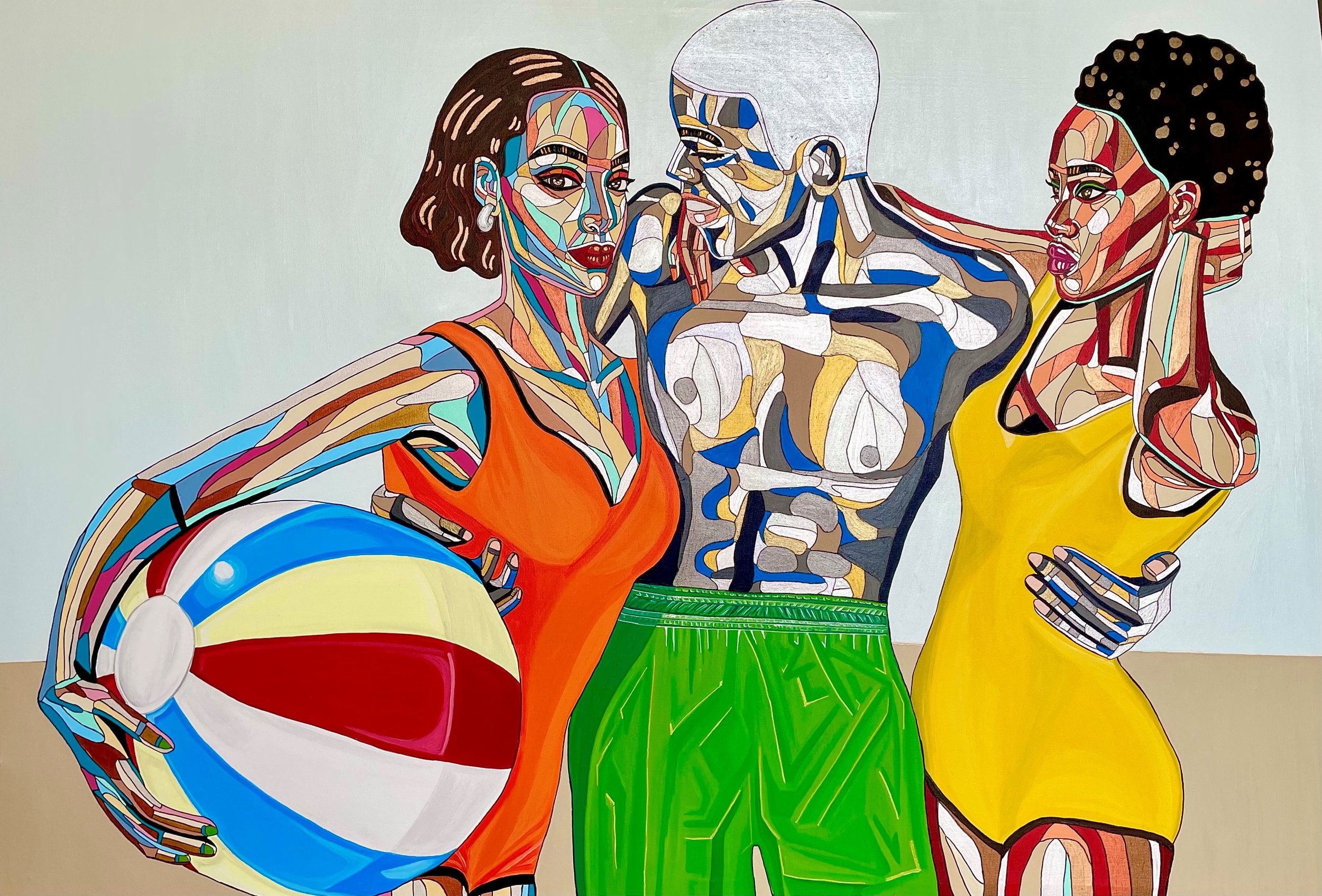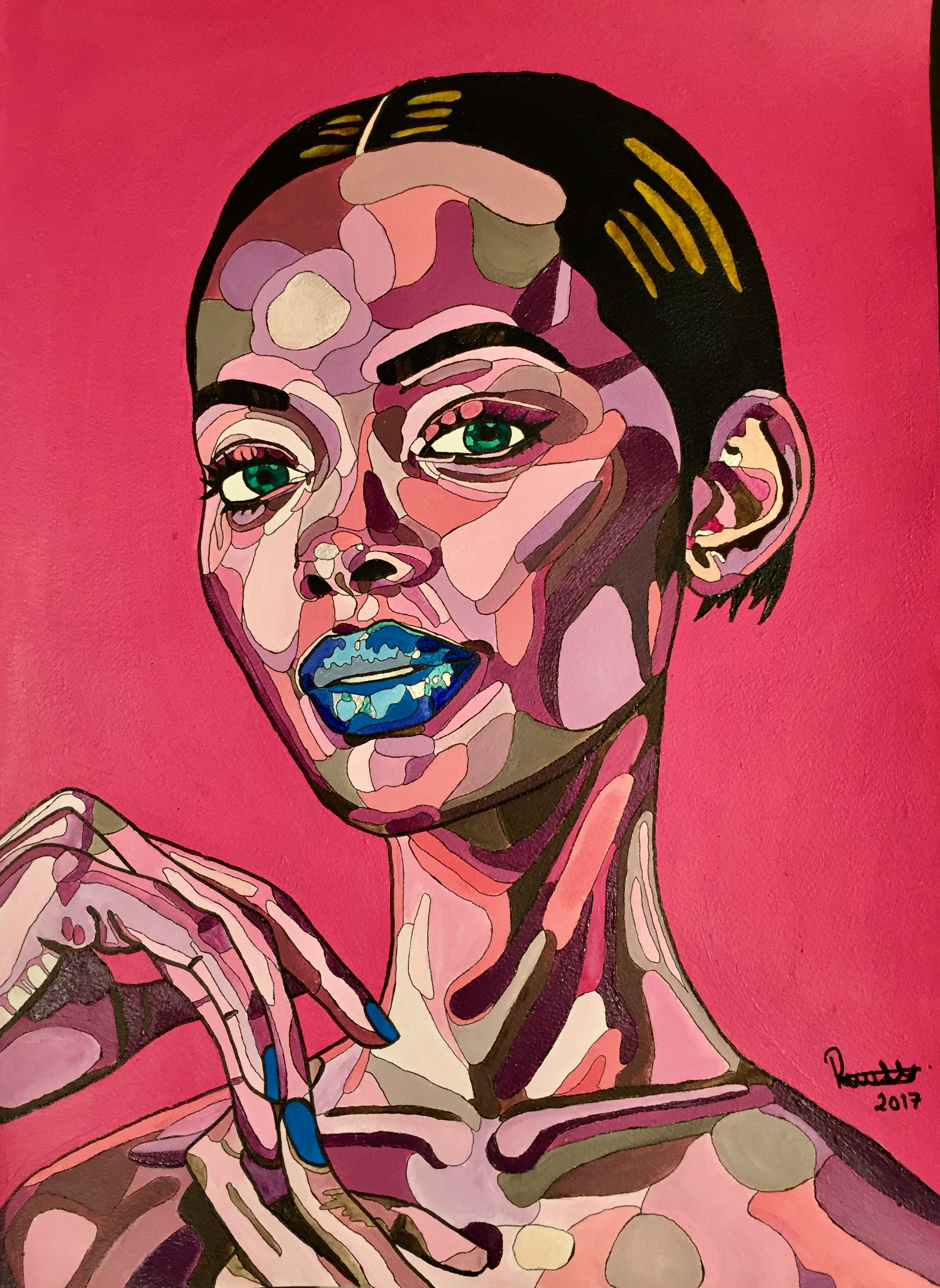Viewers often categorise my work under the umbrella of “Contemporary African Art.” I prefer to describe it as Igbo Vernacular Art. This distinction matters to me because I believe I have created a truly original body of work, one that exists outside formal academic structures and Western artistic dialogue. My art is rooted in lived experience and intimately tied to the place and culture from which it emerges. Igbo Vernacular Art more accurately reflects a unique expression of customs and traditions, anchored to a particular people and a particular geography.
My hybrid upbringing and lived experiences also deeply inform my work, capturing the essence of today’s Afropolitan woman: forward thinking, progressive, uninhibited and self aware, yet still tethered, however loosely, to the responsibilities and expectations shaped by tradition. In my case, that tradition is Igbo, South Eastern Nigeria’s ethnic group, often considered the country’s most enterprising and independently minded. The ancient customs and values of the Igbo people, along with their fierce independence, are woven into my portraits and explored through a contemporary lens. Themes such as coming of age, engagement, marriage, and civic responsibility are central to my practice, blending the ancient and the modern, adapted for the times but never diluted.
Igbo Vernacular Art should not be conflated with Folk Art. Rather, it engages with a visual language more aligned with Contemporary Modern Art through its emphasis on form, composition, and narrative. Just as vernacular dialects are rooted in a specific land, so too is my work built on a strong sense of place. It speaks in a visual vocabulary born of a location, a history, and a people.
-
REWA
onye isi okanga: Proud Beings
Where Spirit, Power, and Pride Converge.
Pink Party
Cake + Bubbles
Renascenting Africa
Debunking De-Facto Depictions
Candenscence Unchained
Seasonality Meets Fashion
i’je awel’le
A Beautiful Journey, A Safe Journey
umu ada
The Council
kp’ari
The women of Onitsha
nwa agbo
Entering Adolescence
inu nwunye: BRIDE PRICE
Marital rites & traditions of the Igbos of Onitsha
onicha ado n’idu
Naming rites & traditions of the Igbos of Nigeria
THE TRAVELLERS
Lagos. London. Johannesburg.
THE PANTHEON
Nigerian female deities











